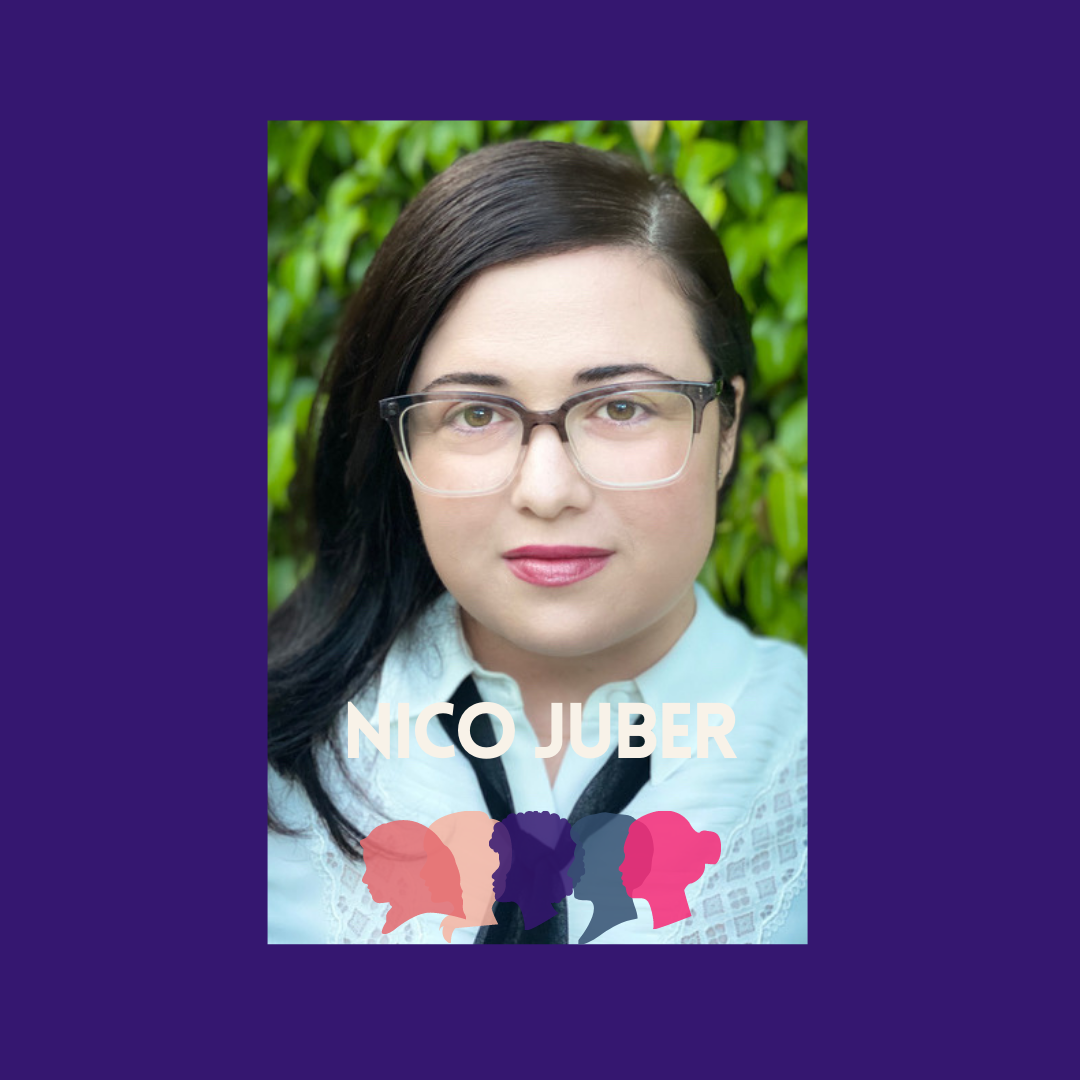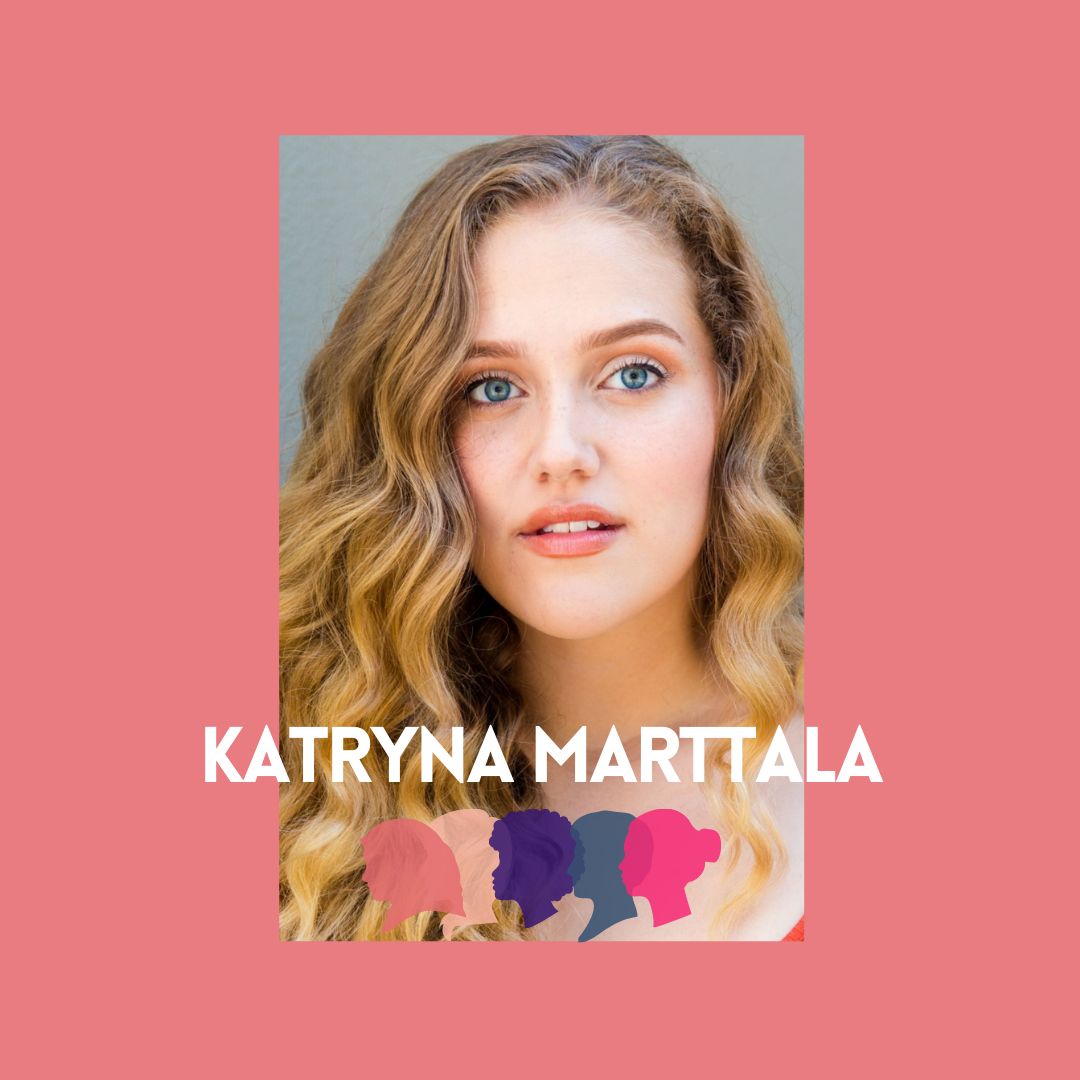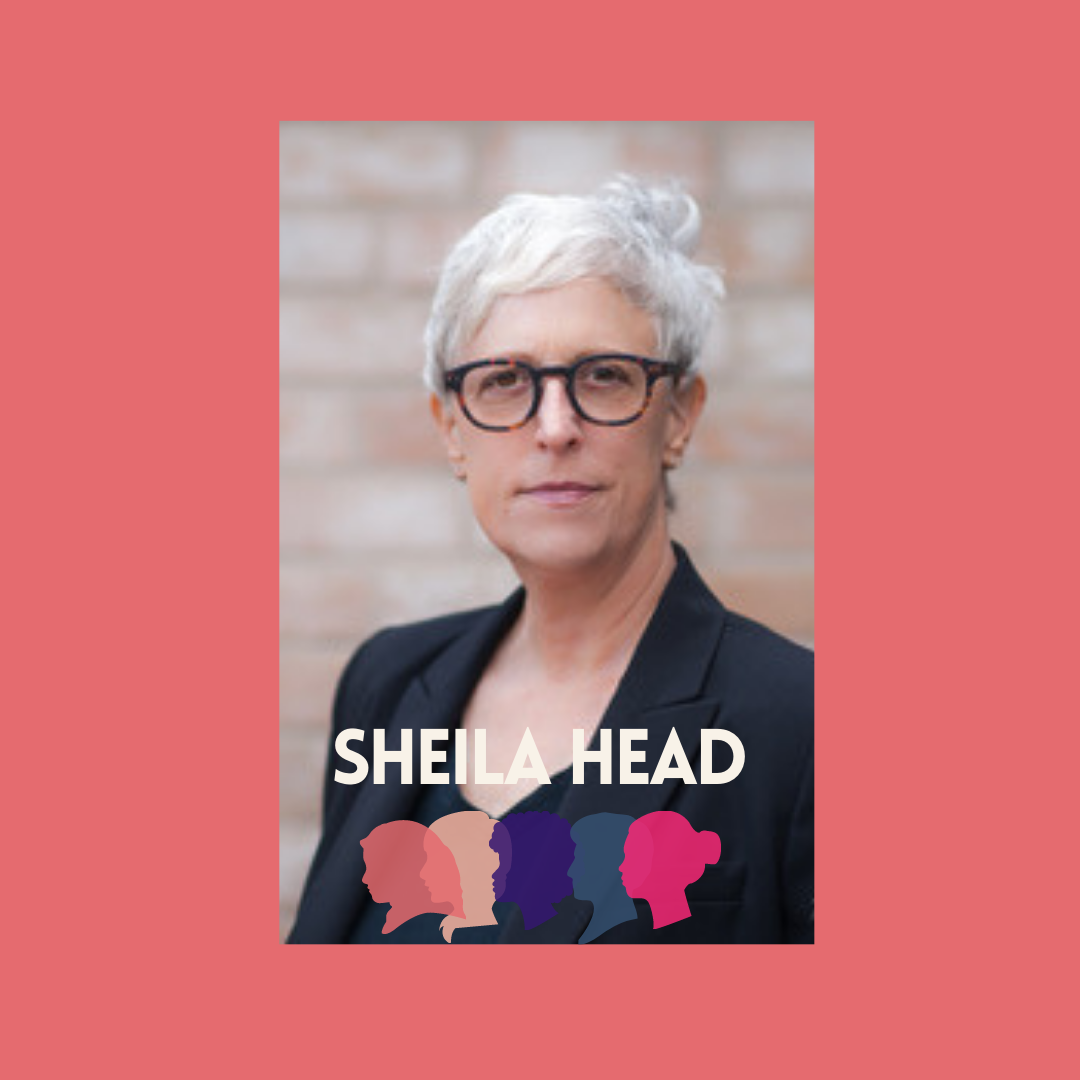Celebrating Pride!
Our mission at Women & Theatre is to speak with people working in all areas of theatre and at all levels of their careers. Our only requirement of interviewees is that they feel comfortable speaking to their own personal experience as a woman (past, present, or complicated). We hope that by talking about these things, we can understand each other’s experiences more and find ways to make the theatrical space - and our whole society - more equitable.
We value the beautifully diverse members of our community, and we want to celebrate Pride this month by uplifting and amplifying the voices of LGBTQIA+ folks in the Women & Theatre community. Here are some of our favorite interview moments. (P.S. Like what you’re reading? Click on anyone’s picture to read their full Women & Theatre interview!)
What does being a woman mean to you? How does womanhood fit into your identity?
I think about the idea that the Divine Feminine and Divine Masculine are a part of all people. But our society has deeply gendered them into MAN and WOMAN, and if you have a combination of those things as a man, you’re girly or weak, or as a woman, you’re a bitch.
To me, femininity and womanhood are about flow and community-building, holding collaboration as more important than the individual. The masculine is like the banks of the river, it gives direction to things. And the feminine is the river itself, the flow. It moves on its own, it moves with the tide in cycles. It’s about finding that place of flow amid the linear, structural thinking that is more masculine in nature.
For me, gender is an evolving thing. I came out as a lesbian last year. After I came out as a lesbian, I was like “Okay, this is it. This is who I am, I am a cisgender lesbian.” But I still felt the same tugging at my soul that I felt before I came out. I was frustrated…
…The thing about gender is just: I don’t have one. It’s so hard to put into words because it’s so fresh. I soft-launched she/they pronouns in September. It definitely runs a little deeper than that for me, which is something I'm still unpacking, but I think that’s okay.
I wish I could say, “This is exactly how I feel about my gender and womanhood, and I have it figured out.” But that’s not realistic. I am publicly working through my gender, and it is scary because labels can change. The way you identify can change. Sexuality and gender are so fluid.
Society programs us into thinking that womanhood, femininity, is so white-centered. I’m an extremely feminine person. But I’ve had a lot of difficulties feeling feminine because I wasn’t white. And I wasn’t able to relate to a lot of what white women were going through in relation to their femininity because it didn’t include me. In fact, it excluded me.
A lot of Black women are either sexualized or masculinized by white people and society. When someone refers to me as “they/them,” it kind of represents my rejecting that and not relating to that. But the experience of a Black woman walking through life is true to my experience. Usually Black femmes or women who may feel othered by society know exactly what I mean and share that experience.
I identify as bi. Right now, I still identify as a woman and feel confident about that, but who knows what the future holds. I’ve had a really complicated journey with my sexuality. Growing up in a very conservative, religious place put a lot of trauma on my sexuality and my identity as a woman. Unfortunately, a lot of my experiences in theatre have just reinforced those things. I’ve made so many leaps and bounds with it, but I am still unpacking it.
Deconstructing the male gaze and deconstructing the need to fit these norms or fit the hypersexualized version of women, especially in this industry, has been a journey. I’m very proud to be queer and to be open with my sexuality. I’ve had a lot of growth in healing from the shame that was placed on me as a child and an adolescent for being queer. I’m proud to be healing from that.
My pronouns change, but professionally I try to use they/them. Recently, I was in a show and the producers were two old white men, and nobody cared to use them. They also asked about why I put my pronouns in my bio in the program. I got the sense that they didn’t actually care who I was because they didn’t care to use the correct pronouns. You know it’s bad when you get into the mentality of “I just have to get through it.” It makes you question why you do theatre in the first place. I’m doing the thing I’m supposed to love doing. And experiences like that make you hate it.
Recently, I did this marketing exercise for a part-time gig where I was asked to go through my bio on LinkedIn and take out any references to “she” or “her" to make it read as gender-non specific. I felt like I was taking something away from my identity. It informs so much of who I am and my path. It created empathy for people who are forced to use pronouns that don’t represent them. I think everyone should try this exercise to see how they feel about their pronouns and what they relate to. Womanhood is so central to my writing, which is a reflection of who I am and how I see the world.
The common thread I’ve found in my writing is that my stories center women. I identify as queer. I’ve known I was bisexual since I watched The X Files when I was 12. I’m sure that’s a lot of people’s story, right? And because I am queer, I also want to make sure that queer stories are represented in my writing.
What unique benefits do women bring to theatrical spaces? What limitations have you faced because of your gender?
People who are socialized as women are more encouraged to be in touch with our vulnerability. Unfortunately, a lot of men look at that as a bad thing, but I think it is such a beautiful thing. It is such a disservice to men that they are shied away from that. Vulnerability is such an aid in theatre and in being an artist. The stories we tell are compelling because we see people be vulnerable. We see people tap into empathy and tap into other humans’ experiences. I think that’s a strength that women have. It makes me really proud to be a woman. The female approach to things can be different. And that should be celebrated.
This ideology of pushing us to fit into this super tiny, perfectly packaged box – that’s not how anybody exists. Why are we limiting people to these stereotypes? We are vast humans.
When I get to work with mostly female teams, mostly queer teams, I’m like, THIS is what theatre should be. I want to be in a room with people who are trying to create something brilliant.
When women, non-binary, and queer folks group together, we are able to show that we exist. We are here making great art and you will notice us. We are gonna be Off-Broadway, on Broadway. I just saw A Strange Loop a couple weeks ago. I’m not a fat queer Black man, but I relate to it more than anything else in my life. I understand the struggle of being different in this world and trying to make it.
In my head, I feel like a very masculine presence, and I know that’s not how I look. Over the summer, I described myself to a friend as “soft butch.” And if it were up to me, maybe I would present in that way. One day, I probably will.
But there is a fear that because I have long hair and blue eyes and high cheekbones, I wouldn’t be considered for roles that I could and would play. I worry that if I present in a more androgynous way, which is what I want, it would affect casting. And I worry about how people will perceive me if I start presenting in the way that I want to in my personal life. That sucks, and I shouldn’t have to feel that way, but I do!
How to Improve the Theatre Industry
To me, the thing that’s exciting about being a woman musical writer is that the field is so open to tell women’s stories. There are endless opportunities. One of the challenges, though, is that if you’re working with a producer and a team, it could be for the rest of your life. If you have a hit show, these are the people you are married to forever. I’m really interested in seeing a lot more women and people of other gender identities in lead producing positions, because I think they’re going to be the ones who are interested in championing and being married to women’s stories for the rest of their lives.
I think a lot about how queerness relates to theatre and how the stories that are told are just so straight-washed. Why does it have to be straight? If it is queer, why does it have to be about traumatic queer events? Why can’t we see a more diverse range of queer people existing? I would love to see theatre get to a point where that is a thing more often.
What are you most proud of?
I used to be really afraid of being an individual. I didn’t want to stand out and make waves. Something I’m proud of now is that I was able to find my voice in the pandemic, and I was able to find things that I truly care about. Now I’m able to be extremely candid about issues that are important to me. I think I was so afraid of conflict that I was not able to share how I truly felt about things, and I had a deep fear of being vulnerable. I’ve sat with it long enough that now, I’m really proud of the person that I’m becoming, that I’m growing into.
My relationship with my wife. It’s such a collaboration, such a negotiation. I was not used to this kind of happiness. In the late ‘80s, I felt like “I’m different. I don’t deserve someone who’s great and nice.” And then this one shows up.
We did a little thing called Liberty and Justice: A Love Story when marriage equality was passed for everyone in this country (directed by Mandy Fabian, who I admire so much). We were inspired by an illustration of Liberty and Justice sweeping each other off their feet and making out, so we did this little short. By far, the most creative and most beautiful thing I’ve ever been a part of establishing and maintaining is my relationship with Norma. I wish it on everyone. If everyone had the kind of relationship that we have, there’d be no war. You’d have someone to talk you out of it.
I’m really proud of this last year of growth I’ve had. It’s the first time in a long time that I can look at myself in the mirror and say, “I like you. I love you.” I’m still working on trust, but I trust myself more than I ever have! And I’m really proud of myself for putting in that work and being able to feel good about who I am as a person and what that means for my artistry and my everyday life. That’s not easy. I’ve done a lot of healing to be able to say I’ve made a good life for myself. It’s not what I thought it was going to be when I was 18, but I wouldn’t want that now.
Resources for LGBTQIA+ People in Theatre
I’m a member of the Ring of Keys nonprofit, an artist service organization that fosters community and visibility for musical theater artists, onstage and off, who self-identify as queer women, transgender, and gender-nonconforming artists. They created a directory of queer and gender-nonconforming and transgender artists, and you can make a profile and link to your website. They give you a badge to put on your resume, they have audition opportunities, and they put on concerts.
I’m part of the National Queer Theatre Artistic Collective, and I’ve learned so much from that experience about what it takes to curate queer theatre. Identities do matter in this context, and you have to figure out a way to make it fair for everybody, or push people forward who haven’t necessarily had the chance to be pushed forward. I love storytelling, and I want to curate a space for people to tell their stories. A lot of spaces are becoming more female- and queer-centred. I love the intersectionality of it. If something is queer, it will inherently be more “feminine.”
Take care of yourself, and learn how to navigate. Whether that means finding a counselor or a group… If you’re in crisis, there’s always someone there for you. A lot of womanhood is us taking care of each other on our journey forward. We’re never gonna go back in time. So how do we make the most of the mistakes we’ve made, the triumphs that we’ve had, in order to pay it forward? I just really want to take care of my female peeps because we’re expected to take care of so much.
The Last Word
Women and femmes, do not quiet yourselves. Speak up in rooms. Speak up for what you believe in. Write what you wanna write. Produce the work that you want to be a part of. I’m saying this as much for myself as I am for every other femme-identifying person, because we are silenced so much in this society, and fuck that. Speak up.
Support Black actors, support trans actors, support Black trans actors! Bye!
Thanks for reading!
Please join the conversation by leaving a comment below. If you’d like to stay involved with the Women & Theatre community, please follow us on Instagram and Facebook, sign up for our email list, and consider making a donation to support our work.






















